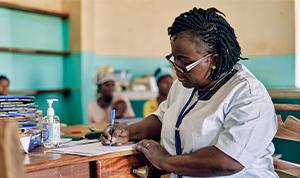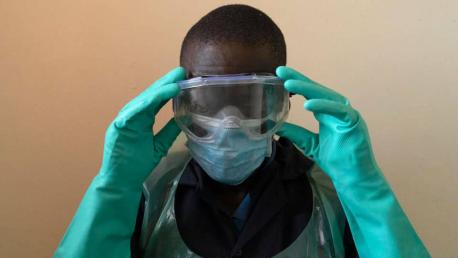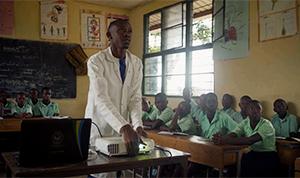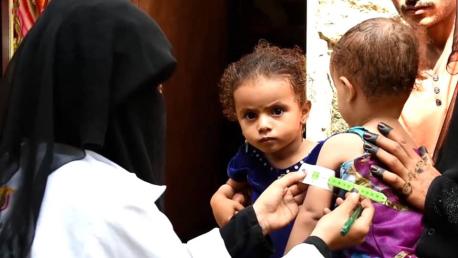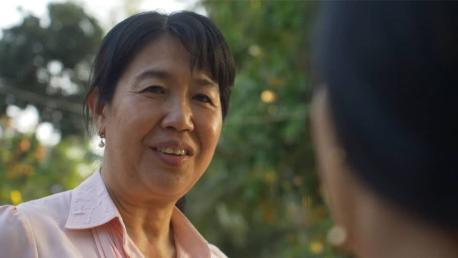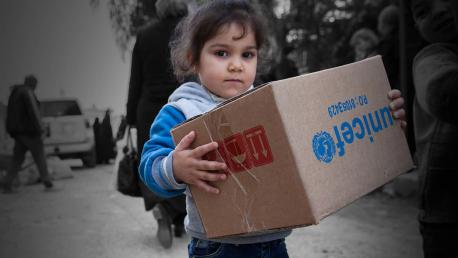
Every Child
Safe
Every year, UNICEF responds to hundreds of humanitarian emergencies around the world — braving war zones, treacherous terrain, disasters and disease to protect the most vulnerable children. Before, during and after emergencies, UNICEF is there.
Kids need UNICEF more than ever:
- The number of people who need humanitarian assistance keeps rising due to conflicts and climate change, rising poverty and food insecurity.
- Urbanization, environmental degradation, large-scale migration, forced displacements and public health emergencies increasingly compound the threats children face.
- Globally, over 114 million people have been forced to flee conflict, violence, human rights violations and persecution — a record number.
- Climate disasters — from severe drought to flooding — have tripled over the last 30 years, increasing water scarcity and food insecurity and displacing more and more families from their homes.
- In war, children under age 5 are more than 20 times more likely to die from diarrheal disease linked to unsafe water and sanitation than from conflict-related violence.
Meet Birma Kunwar, a health worker in Nepal
Donating to UNICEF: a smart way to make your money go further for children
- UNICEF has a global presence: UNICEF works in more than 190 countries and territories, more than any other children’s organization.
- UNICEF acts quickly: Thanks to UNICEF’s emergency response systems and global supply chain, help can reach children in an emergency with lifesaving supplies — almost anywhere in the world — within 72 hours.
- UNICEF gets results: UNICEF supplies vaccines that reach 46 percent of the world's children under age 5 to protect them from potentially deadly diseases, focusing on the most vulnerable and hardest-to-reach children.
- UNICEF gives families the help they need: Millions of households are benefiting from cash assistance, helping families feed their children, get them to school and heat their homes — and relieving the economic pressures that can send children to work or early marriage rather than school.
- UNICEF employs proven strategies for helping children in emergencies heal: UNICEF connects children with the psychosocial support they need to cope with the immediate and long-term effects of exposure to war and other traumas.
- UNICEF makes sure kids can be kids: Child-Friendly Spaces in emergency settings offer displaced and otherwise vulnerable children with a safe place to play and learn and find some normalcy — all critical to their recovery.
Meet UNICEF Workers Helping Kids Around the World
UNICEF: saving and changing lives
Meet Rashed. He is one of more than 910,000 Rohingya people who fled genocide in Myanmar since August 2017. Today he helps his family make do in the camps of Bangladesh, but he has hopes and plans for a brighter future.
